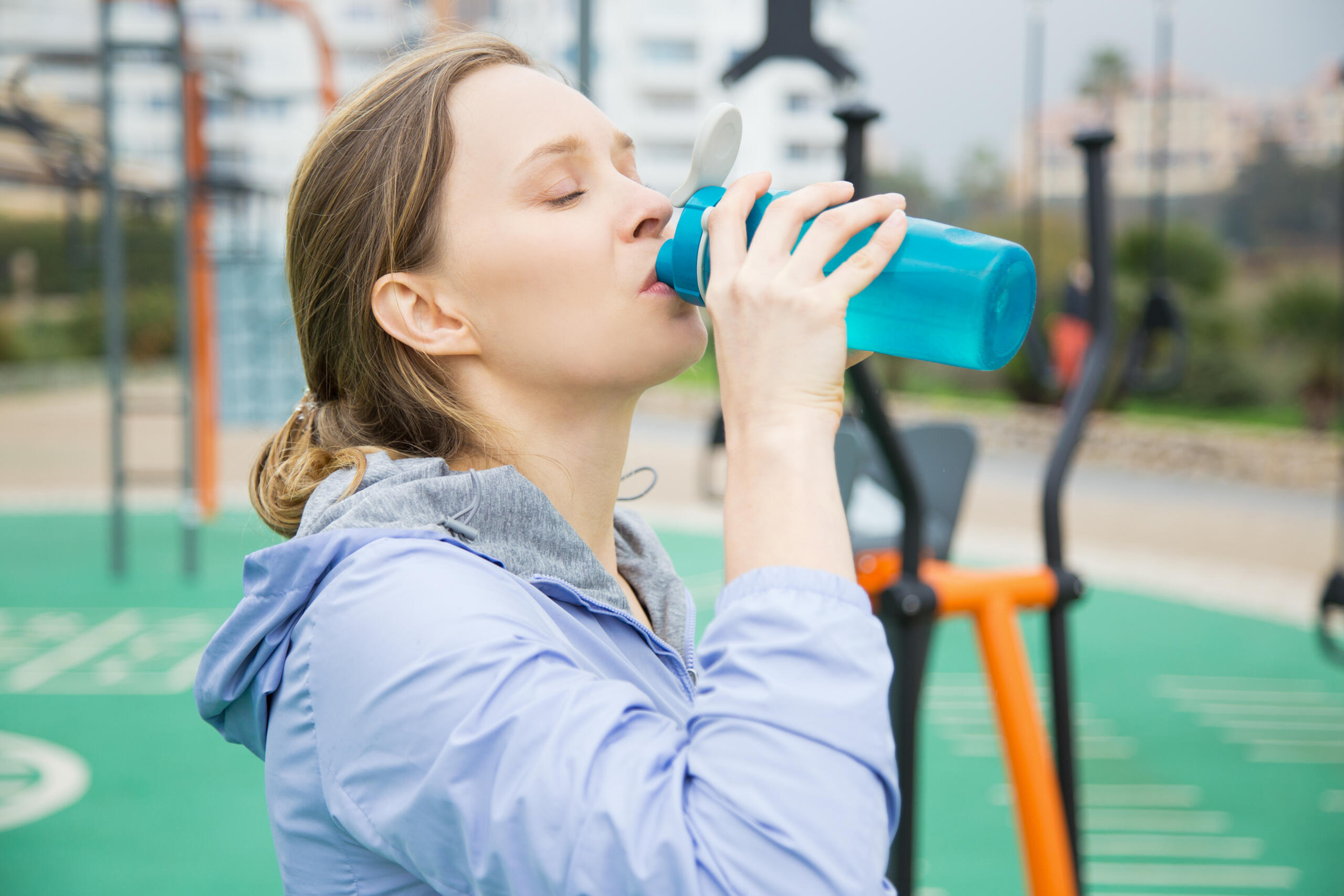[Is it safe to drink water in plastic bottle? Drinking water from plastic water bottles, Is Plastic bottle safe for drinking water or to store water?]
Plastic water bottles are a common sight in our daily lives, offering a convenient way to stay hydrated. However, there’s a growing concern over the safety of drinking water from these bottles. In this article, we will explore the disadvantages of using plastic water bottles, including chemical leaching, environmental impact, health risks, and the role of Bisphenol A (BPA). We’ll also discuss the potential side effects of long-term use of plastic water bottles.
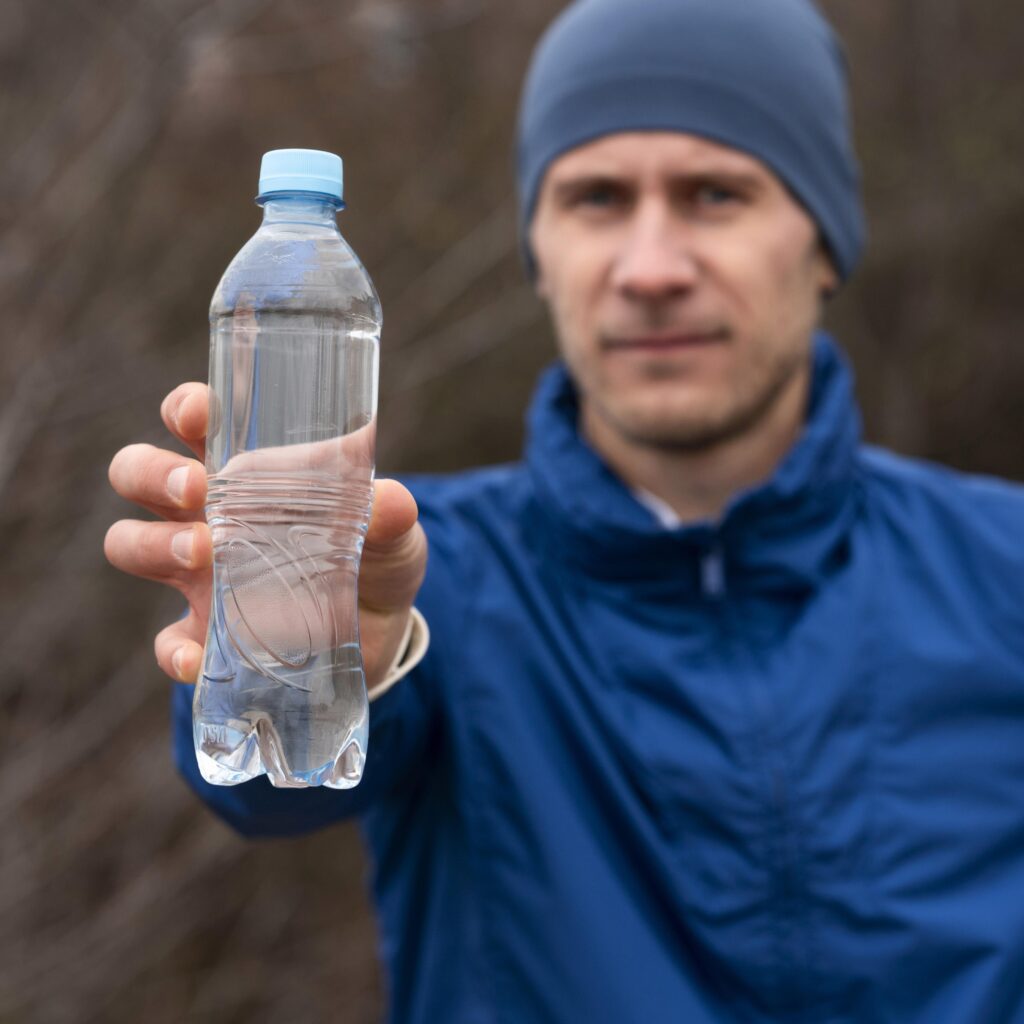
The Role of BPA
Bisphenol A (BPA) is a common chemical used in the production of certain plastics, including some plastic water bottles. BPA is a known endocrine disruptor and has raised concerns about its impact on human health. Some countries have imposed restrictions on BPA use in plastic products, but it can still be found in some bottles.
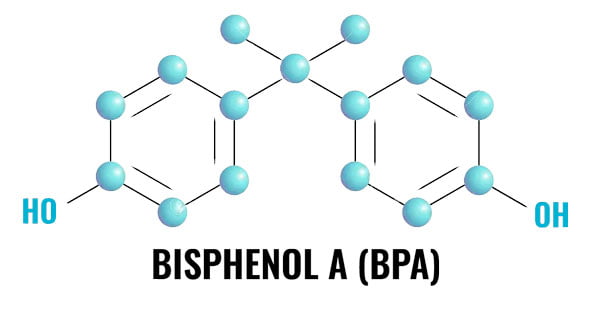
What are the plastic codes good to use
Don’t worry code means no coding or programs I’m talking about, plastic codes means basically the recycle numbers of plastic. There are 7 codes which categorizing all the plastic materials –
1. Polyethylene Terephthalate (PET or PETE)
2. High-Density Polyethylene (HDPE)
3. Polyvinyl Chloride (PVC)
4. Low Density Polyethylene (LDPE)
5. Polypropylene (PP)
6. Polycarbonate (PC)
7. Other Plastics
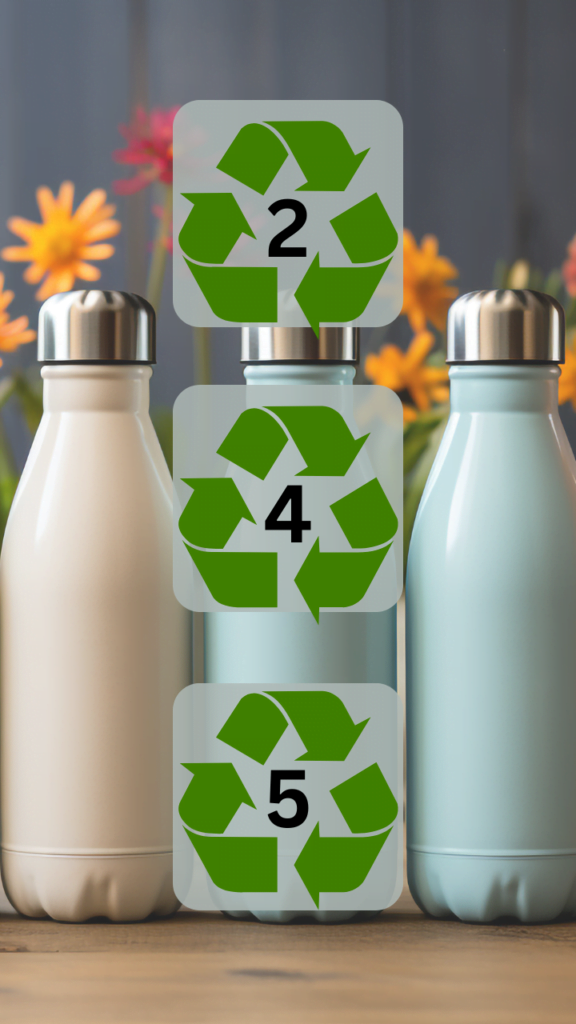
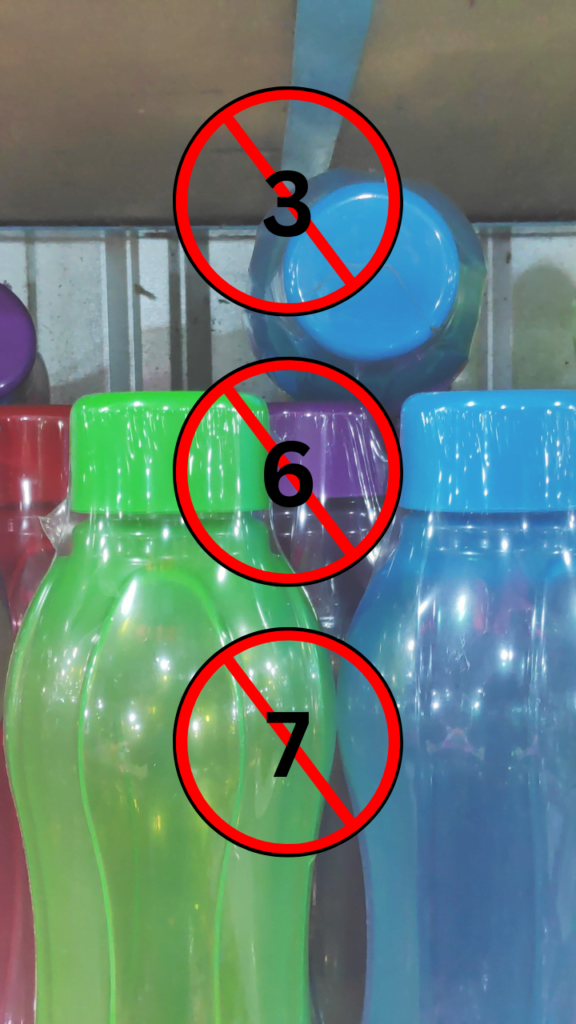
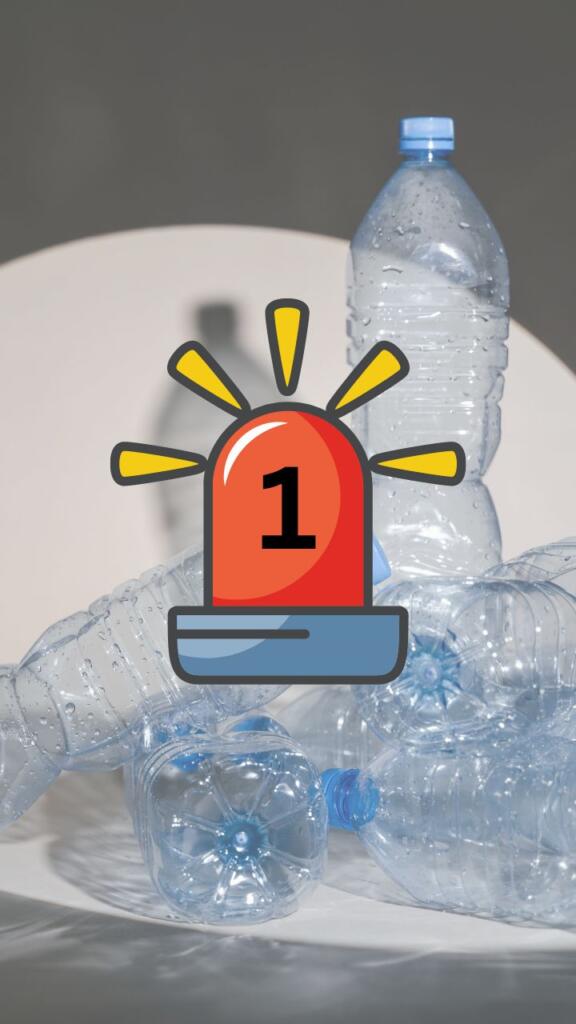
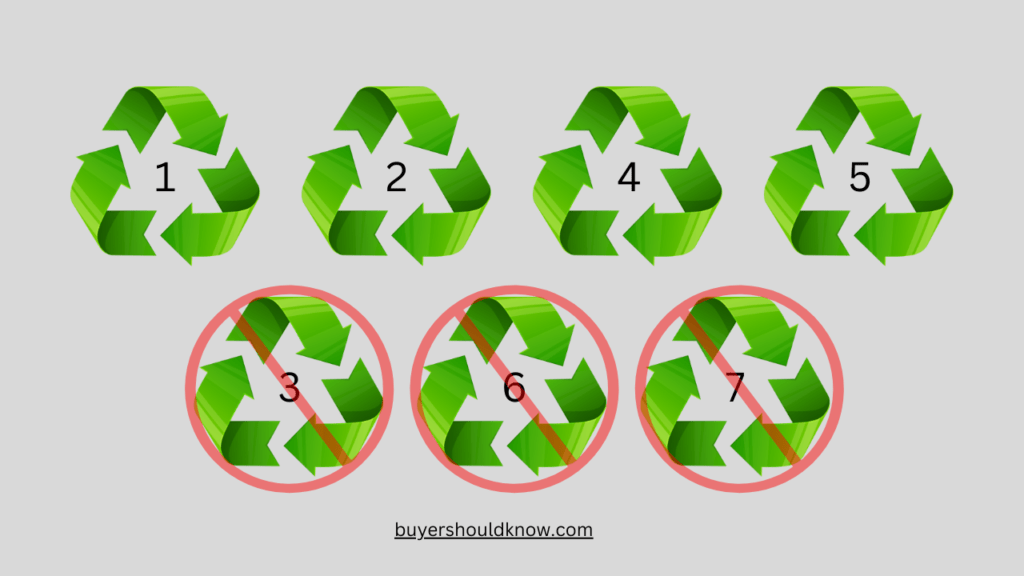
According to the publications of health organizations, out of those above codes only ‘2’, ‘4’, ‘5’ are best for reuse and ‘1’ is okay to use but best for single use and code ‘3’, ‘6’ , ‘7’ are not supposed to use. Know more…
Disadvantages of Plastic Water Bottles
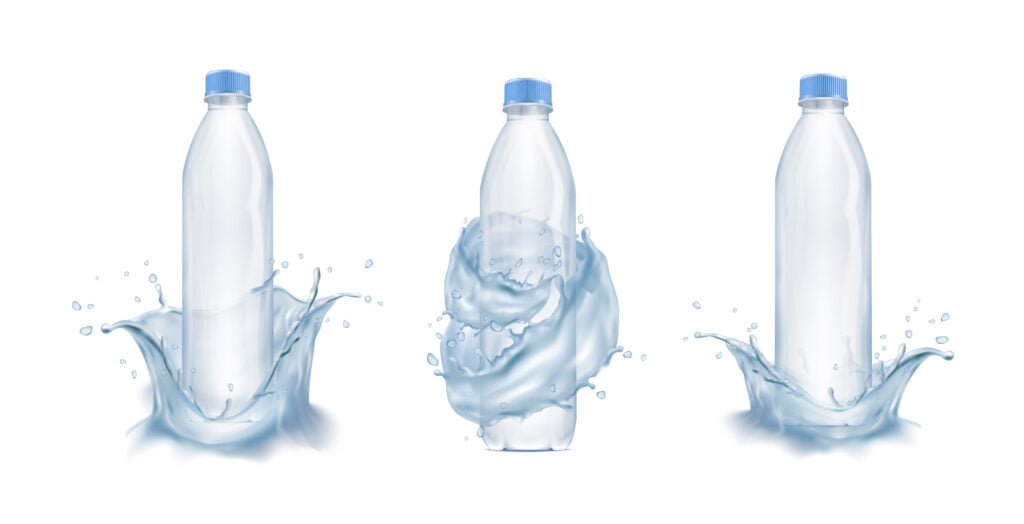
- Chemical Leaching: Plastic water bottles, particularly those made from low-quality plastics, can leach harmful chemicals into the water they contain. This leaching is most pronounced when bottles are exposed to heat or sunlight, potentially affecting human health..
- Environmental Impact: Plastic water bottles are a significant contributor to plastic waste and pollution. They often end up in landfills, rivers, and oceans, where they can take centuries to decompose, harming ecosystems and wildlife.
- Health Risks: Prolonged use of plastic water bottles may pose health risks. Harmful chemicals, such as phthalates and BPA, have been linked to hormone disruption, developmental problems, and even cancer. These chemicals can find their way into your drinking water over time.
- Non-Biodegradable: Most plastic bottles are not biodegradable; they can take hundreds of years to decompose, occupying landfill space.
- Resource Depletion: The production of plastic bottles requires significant amounts of oil, contributing to resource depletion and greenhouse gas emissions.
- Energy Consumption: Manufacturing plastic bottles consumes large amounts of energy, exacerbating climate change.
- Microplastics: Over time, plastic bottles can break down into microplastics, which can contaminate water sources and harm aquatic life.
- Cost: Purchasing bottled water is more expensive than using tap water, which is often of comparable or better quality.
- Inefficiency: The water bottled in plastic bottles is often sourced from municipal water supplies, making it less regulated and tested for quality than tap water.
- Transportation Emissions: The transportation of bottled water from production facilities to stores generates greenhouse gas emissions.
- Disposal Issues: Improper disposal of plastic bottles can result in them ending up in landfills, incinerators, or the natural environment, causing long-lasting pollution.
Side Effects of Long-Term Plastic Water Bottle Use
Long-term use of plastic water bottles may lead to the following side effects:
- Hormone Disruption: The chemicals leaching from plastic water bottles, including BPA, can disrupt your hormonal balance, potentially causing reproductive and developmental issues.
- Increased Cancer Risk: Prolonged exposure to harmful chemicals from plastic bottles has been associated with an increased risk of certain types of cancer, including breast and prostate cancer.
- Reduced Fertility: Some chemicals in plastic water bottles can interfere with fertility in both men and women, making it difficult to conceive.
- Impaired Immune Function: Continuous exposure to these chemicals may weaken the immune system, leaving you more susceptible to infections and illnesses.
Instead of plastic water bottles you should use steel water bottles for better health.
Conclusion
While plastic water bottles offer lots of convenience, but they come with a host of disadvantages, including chemical leaching, environmental impact, and health risks. Prolonged use of these bottles, especially those containing harmful chemicals like BPA, can have detrimental side effects. To prioritise your health and reduce environmental impact, consider switching to safer alternatives, such as BPA-free, reusable bottles made from stainless steel or glass. It’s a step toward a healthier and more sustainable lifestyle.
Frequently Asked Questions (FAQ)
Is it safe to drink from any plastic water bottle?

Not necessarily. The safety of drinking from plastic water bottles depends on the type of plastic used and the presence of harmful chemicals like BPA. Look for BPA-free, food-grade plastics. Also check put the plastic code usually visible on bottom of water bottle or any plastic bottle or container. Make sure code is ‘2’ or ‘4’ or ‘5’. Know more…
Are there safer alternatives to plastic water bottles?
Yes, alternatives like stainless steel, glass, or BPA-free plastic bottles are safer options. These accoutrements are less likely to strain dangerous chemicals into your water.
Can I reuse single-use plastic water bottles?

Reusing single-use bottles is not recommended, as they are not designed for repeated use and may leach chemicals over time. Invest your money in a durable, reusable water bottle instead of single use bottle. Know more about how long you can reuse plastic water bottles.

